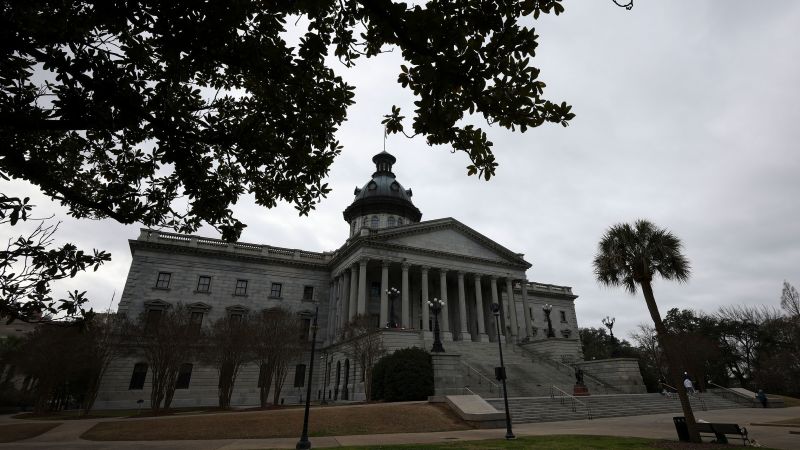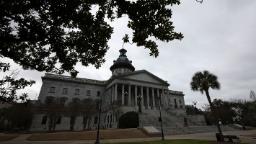

CNN
—
A South Carolina judge has temporarily blocked the state’s new abortion restrictions from going into effect, just one day after Gov. Henry McMaster signed them into law.
The law, which limited most abortions as early as six weeks into a pregnancy, was signed by McMaster, a Republican, on Thursday and went into effect immediately. Moments later, Planned Parenthood South Atlantic, along with the Greenville Women’s Clinic and two physician plaintiffs, filed a lawsuit in state court to try to stop it.
Circuit Court Judge Clifton Newman made the decision Friday in Richland County, South Carolina, to put the new law on hold until the state Supreme Court can review the case to determine whether it violates the state’s constitution.
For now, abortions in the state remain legal up until around 20 weeks until the Supreme Court makes a decision or takes other action to allow implementation of the law.
“Today the court has granted our patients a welcome reprieve from this dangerous abortion ban,” said Planned Parenthood South Atlantic President and CEO Jenny Black. “Our doors remain open, and we are here to provide compassionate and judgment-free health care to all South Carolinians. While we have a long fight ahead, we will not stop until our patients are again free to make their own decisions about their bodies and futures.”
McMaster said he looked forward to the state Supreme Court taking up the case and state Attorney General Alan Wilson, a Republican, said his office is “considering all our options” as a response.
“We’ve defended the right to life in court before, and we’re prepared to do it again,” Wilson said.
According to McMaster, South Carolina has filed a motion asking the state Supreme Court to quickly take action on the case. In the emergency petition, the state wrote that the “Court should grant the Petition or, alternatively, expedite the briefing in this appeal or transfer the case to the Court’s original jurisdiction docket.”
In the filing, the state asked the Supreme Court to stay Newman’s order and allow the new restrictions to take effect while the appeal is being heard.
South Carolina passed a similar six-week abortion ban in 2021, but the state Supreme Court struck it down earlier this year, concluding that the state constitution’s privacy protections require that women be allowed sufficient time to determine they are pregnant and end a pregnancy.
Republican sponsors of the new legislation said they felt changes to language in the new legislation addressed the Supreme Court’s concerns about the previous law.
The author of the January decision, Justice Kaye Hearn, was the only woman on the state’s high court bench at the time. She has since retired. There are currently no women on the South Carolina state Supreme Court bench.
Senate Bill 474, known as the “Fetal Heartbeat and Protection from Abortion Act,” bans most abortions after early cardiac activity can be detected in a fetus or embryo, commonly as early as six weeks into pregnancy, before many women know they are pregnant. Any physician who knowingly violates the law will have their license to practice in the state revoked by the State Board of Medical Examiners and could face felony charges, fines and jail time.
The law includes exceptions to save the patient’s life and for fatal fetal anomalies, as well as limited exceptions up to 12 weeks for victims of rape and incest, with doctor reporting requirements to local law enforcement. It also contains an amendment added by the House that would require a “biological father” to pay child support from the point of conception.
This story has been updated with additional developments.
